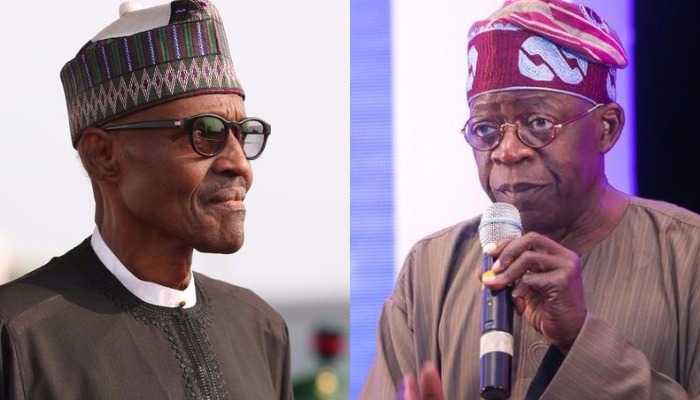Headlines
Eye on power: U.K–Africa Investment Summit and the future of oil (column)

By UCHE CHRIS
Ordinarily last week’s U.K- Africa investment summit held in London with President Buhari in attendance followed the traditional and established pattern of previous ones. Generally it has become customary for developed economies to assemble Africa leaders in one summit or the other with the objective of assisting the beleaguered continent to overcome its debilitating economic and social challenges.
In the past, we have had the Sino-Africa, Russia-Africa, U.S.-Africa, Germany-Africa, Franco-Africa, and now U.K-Africa, prompting cynical observers to allege another scramble for Africa, after the 1882 Berlin conference that partitioned the continent. This is significant in that it is a counterpoise to the previous regional economic groupings and blocs which had dominated global and continental relations since the end o the Second World War and the emergence of the European Economic Union in 1964 with the rise of nationalistic tendencies in many countries.
The U.K summit encapsulates the spirit behind all the other summits, if there was any doubt or question about its motivation. Brexit will see U.K leave the EU and she is seeking alternative markets to the former European trade bloc. The Commonwealth and Africa would provide a veritable option for its exports, since she will be in direct competition with the other European countries, U.S. and China.
Although the summits are presented as avenues for bilateral trade agreements and economic aids to African countries, the real motivation is to cajole the recipient countries into preferential trade deals and agreements. So the so-called aids are Greek gifts intended to tie them to the apron-strings of the donor countries. It is a strategic weapon of neocolonialism and has always been like that since the former colonies attained independence several decades ago.
For Nigeria, the UK summit was critically important because of what was not said but could be inferred from the statement of Prime Minister Boris Jonson. He reminded Nigeria of the future of fossil fuel and the need to pursue the Green economy. To a casual observer, this is one of the diplomatic talks; but to those who understand global political economy, this perhaps, is the best take away from the meeting for Nigeria more than the 200million pounds aid it received.
But given the mindset of our leaders toward oil, the fact may be lost on them. We have lived and depended so much on oil that it is unimaginable and inconceivable to contemplate a time without it. Unfortunately for us, there is never a thing that lasts forever. The utilisation of fossil fuel is just over 100 years and it has already almost outlived its usefulness and functionality. This is not because society does not need it again, but it has become dysfunctional and counter-productive to the future of the planet and the very survival of man.
At the pain of being accused of scare-mongering, the issue of climate change and Green house effect will dominate global concerns this decade; in fact this decade will be a climate change decade and fossil fuel will be the major object for its resolution. As a pointer to what will come, the World Economic Forum, WEF, which held in Davos, Switzerland, last week made it the theme; which is instructive, because climate change is not a purely economic issue ; so the linkage is indicative of its growing significance and concern.
By telling Nigeria of the need to go green, Johnson was pointing us to the future of economic relations between Nigeria and the U.K, which is one of the leading nations in the development of green technology. Yes, self serving you may say, but it is the truth all the same and it will benefit us as much as them if we heed the call. U.K is looking for market for their products to recoup their investments. However, continuing dependence on oil will hurt Nigeria immeasurably in the long run.
Concerns for the future of oil are not necessarily because oil will ceased o be useful; not at all! Or that the nation’s over 40 billion barrels reserves will be abandoned. Oil will continue to exist and be pumped from wells; and there will be buyers or consumers ready to pay for it. But the critical fact is that not too far from now, oil will lose its present value and may eventually be prohibited by the developed countries given that the main producers are third world countries such as Nigeria, Saudi Arabia and the Gulf States, Mexico, Brazil, Russia, etc.
For instance, Brazil, a major non-OPEC producer is a leader in green energy, and is already in a position to profit from any switch from oil without hurting its economy. It is also a major global manufacturing hub that oil now plays less and less role in its economic well-being and growth. Again, Saudi Arabia has diversified its economy to reduce its dependence on oil even though it is the world’s largest producer.
The issue with the future of oil has nothing to do with the reserves but the consequence of its use. A global consensus among scientists now exists on the perilous nature of the planet which is facing two (2) centigrade rise in global warming every decade and we are reaching a threshold if not checked could imperil mankind. Although the likes of President Trump dispute and question its veracity but he is in the minority even in America.
And fossil fuel or oil is the major cause of Green house effect which is responsible for global warming. The raging wild fires in Australia provide ample evidence to arm its advocates, and it is only a matter of time before a political consensus agrees with the scientific. As more and more countries go green, the incentive to continue with the il economy will diminish and its producers will have a product they cannot sell.
Now the question is: Can Nigeria survive on oil price below $20 per barrel with a burgeoning population, massive infrastructure deficit, and huge youth unemployment, and rising insecurity etc? Such is the dire prospect facing the nation which the summit brought to the fore.
Push for green economy will begin another stage of neo-colonial dependency by countries such as Nigeria that have found themselves outside the new economic loop. China and India which used to be the rallying points of the southern hemisphere in the climate change debate are almost maturing technologically and may no longer be the bulwarks against it.
China and India are also the biggest consumers of fuel. China however, has a global economic and political leadership ambition and will have to play by the book to actualise it. India will not be an exception; sooner or later it will comply. So who will be buying Nigeria’s oil when that time comes? And it will come.
With the major consumers such as the EU, America – also a major producer – China, Japan etc going green it may not take long before oil loses its strategic importance to the world. At that time, and without the alternatives in large scale mechanized agriculture, manufacturing, ICT, and human capacity development, the economic viability of Nigeria will be in jeopardy. This is the lesson from the summit and we must take it to heart.










